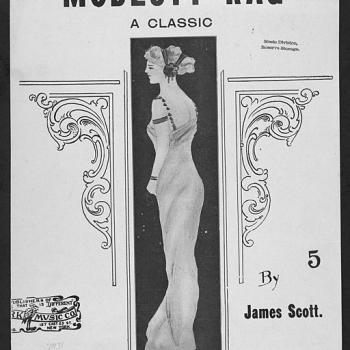Many people point out that St. Teresa Benedicta of the Cross, aka, St Edith Stein, was a Jew and her death can only be understood because she was a Jew. Yes, she was a Jew. Her Jewish heritage allowed her to appreciate the Gospel in a rather unique way. She related her faith in relation to her understanding of Jewish history and tradition. But she was so much more than a Jew.
She was a feminist.
No, she was not a radical who thought femininity was the same thing as masculinity. She didn’t think the distinctions between male and female were unworthy of consideration. As a phenomenologist, she was able to see that there are differences between the two. But she clearly saw that there was a value to the feminine, to women, and they had not been given a proper standing in the world. She understood that the value of masculinity and femininity was the same, even if male and female were different.
As a woman and a Jew, St. Edith Stein found herself discriminated against. She spoke for the rights of women and Jews around the world. The promotion of the feminine, which is what feminism is all about, can happen in many ways. Some ways this is done certainly can be fallacious. However, we should not respond to erroneous feminism with fallacies of our own. We should recognize the legitimate desires of feminism, and, like St Edith Stein, we should work for them to be received in a proper fashion.
It is true, some, indeed, many might want to direct feminist concerns through terrible arguments. The S.C.U.M. manifesto presents to us a rather insidious response to the past. However, we must be careful and not follow suit with our own fallacious response and act as if all forms of feminism are the same. We must not say feminist concerns are illegitimate because some who hold those concerns do so with faulty reasoning and seek unjust ends. Rather, we must appreciate that the Gospel tells us that women do hold a valid place in society, and they do so as women, and not just merely as representations of the human race. The Theotokos, the Virgin Mary, is, after all, the one who accords the highest veneration and respect, and she does so because she was a woman. It is because she is a woman she can give birth to God, to be the Mother of God. It is because she is a woman she can do what no angel could have done. She is more honorable than the cherubim and beyond compare more glorious than the Seraphim because she is a woman, a virgin woman, who gave birth to Jesus. It is as a woman she finds her glory, and as a woman she shows us the height of femininity.
St. Edith Stein followed through with her own declaration of the honorable and respectable nature of the feminine. She shared in the same feminine nature of the Theotokos, but she found that nature was not accorded with the respect it is due. Despite her doctorate, despite her work with and study under one of the great philosophers of her time, she found herself rejected by academia because she was a Jewish woman. She found herself, long before her time in the convent and long before her martyrdom, as one confessing the value of the Jew and the value of the woman, suffering for both, so that both can be, and would be, raised in the world scene. She suffered as a confessor before she suffered martyrdom, and she suffered because of undue prejudice. This prejudice formed the basis of her life. She was to take it on and show what was wrong with it, while at the same time using it to her own spiritual benefit as she became a Carmelite nun. She lived and thrived on the cross given to her, and this, in the end, allowed how to follow Christ as far as possible as she became a martyr.
She died a Jew, as one who showed us the value of the Jewish people. She died a woman, as one who promoted and showed us the dignity of the feminine vocation. She died a Christian, as one who held love for all, even those who would do her harm. Her death, her martyrdom, was for all three, for the Jew, for the woman, and for the Christian. Her saintly life and death shows us the glory of each. And it is in this way she died for Christ himself. She died, giving up her life, because she accepted the glory of Christ and what it gave to the Jew, to the woman, and to the Christian.
But she also died because of what glory Christ gave too the Gentile, to the male, to the non-believer.
Her feminism was about respect and honor, and how everyone, no matter where they come from, no matter who they are, no matter their gender or their faith, should be honored because they are someone made by God with a goodness which no one can destroy. Everyone comes from God and is honored by God by their creation by God. This is the merit and value of St. Edith Stein’s life and death. She reminds us that everyone, especially those who are rejected by society, must be accorded with respect.
Let us, therefore, honor her today by following her and showing honor to everyone. We must let no prejudice rule our lives so that it can destroy the lives of other. This is what she died for. The Jews were loved by Christ, but denied by the Nazis. She died as a Jew, showing us that the Jew should be respected and honored. She did this in her Christian faith, not apart from it. She died a Jew, but also as a Christian. For her, the two were one and cannot be separated. Let us, too, not separate them. Let us remember her for all she represents, that is, in Christ, there is neither Jew nor Gentile, Male or Female. There is only Christ, and we are all called to follow him, to take up our cross and deny the self. Those who do so deserve honor and respect. Those who do not follow through with self-denial need our love and prayers. That is all there is for us as the Christian, love and respect for those who deny themselves so as to find themselves united to Christ, and love and desire for the perfection of everyone who has not attained such glory. This is what St. Edith Stein reminds us. This is what her death tells us.
Let us honor her today by following the example she set forth.












